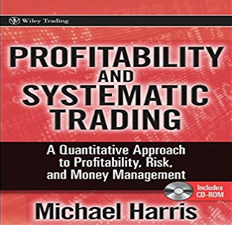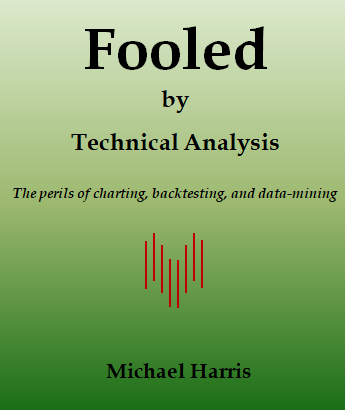Every day there are thousands of posts in financial media that attempt to identify the causes of price action. Most, if not all, of those accounts are wrong. The market is not paying much attention to fundamentals or even technicals on a daily basis.
Trying to understand the causes of daily market moves is an exercise in futility. The market is a non-linear, high dimensional stochastic process and although there are models that forecast daily moves with high accuracy and positive longer-term expectation, the causes of those moves are impossible to determine. Yet, determining the causes is the task of countless traders and analysts in financial media on a daily basis, in the following sense:
- Trying to determine what caused certain price action.
- Attempting to forecast price action based on possible causes.
Both of the above endeavors are exercises in futility. But why are so many engaged in this type of futile task? There are many possible reasons, some I list below:
- Many think they understand markets when in reality they do not.
- Most people do not understand the notion of causation.
- “Talking” about markets is easier than developing robust strategies.
Many think they understand markets when in reality they do not by far
Non-linear, high dimensional stochastic processes are too complex for the human mind. Any assumptions about causes are wrong almost all the time. Most people that try to understand markets would have issues modeling and solving a simple deterministic problem, for example a spring-mass system with damping. Yet, without systems background and especially of the stochastic type, they attempt to identify causes of price action or speculate on price action that will emerge from possible causes.
Most people do not understand the notion of causation
Causes, their existence and essence, are a subject of metaphysics. No one can say with confidence that there is well-defined causation in the world. This is a subject of Philosophy of Science and an especially complex one. Since the times of Newton and Leibniz and their heated exchanges about the causes of motion, no one has provided a framework for establishing the cause of anything and not even that causes exist in reality. Do not try the experiment below at home but this provides an explanation of some kind:
Suppose a stone is tied to the end of a string and whirled around in a circular path. Does the tension in the string cause the stone to follow the circular path, or does the motion in a circular path cause the tension in the string? Conceivably, either view-point could be taken. (D. T. Greenwood, Principles of Dynamics, Prentice-Hall, Inc., p. 25.)
As you can see, even for a simple deterministic dynamical system that obeys Newton’s Laws, we cannot talk about specific causes. Can we do that in the case of markets? The answer is no.
“Talking” about markets is easier than developing robust strategies
Developing strategies is hard, time-consuming and requires a mix of skills. In addition success with strategies is not guaranteed either. The majority that does not possess the skills resort to “talking” and simple assessments of the market action. Note that simple analysis can be correct at times but the longer-term expectation from it is zero and in many cases negative. Very few people can be consistent with simple analysis and that includes those with significant exposure to markets for extended periods of time.
Summary
Trading and investing based on analysis of price action causes are often doomed endeavors. In social media one must be especially careful with references to probabilities, risk, price direction, even expectation and related notions, especially when these are immersed in a soup of words. Well-defined strategies that are cause-indifferent have higher probability of success but there are no guarantees. Trying to explain what moves markets may be a good ego boost but as far as profitability it is a highly questionable practice.
If you found this article interesting, you may follow this blog via push notifications, RSS or Email, or in Twitter
JULY 4TH SALE.
10% off all subscriptions with discount coupon J4.
Sale ends July 7 at midnight.







